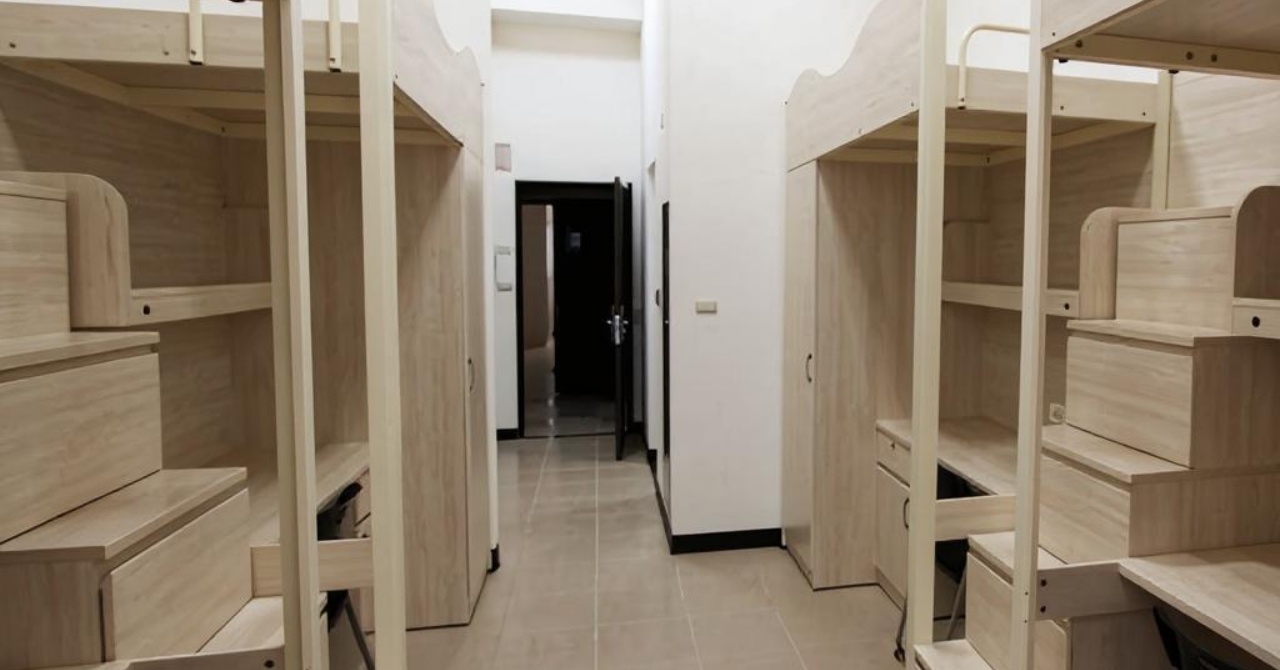One of the biggest perks of working in Taiwan as an OFW—whether in manufacturing or caregiving—is employer-provided housing. Most of the time, this means a dormitory-style setup located just minutes away from your workplace. No need for long commutes or daily transportation costs.
Best of all? These dorms are either completely free or heavily subsidized, letting you save anywhere from NT$6,000 to NT$12,000 monthly compared to private rentals. For first-time OFWs, this is a huge financial and mental load off your back.

Room Layout and Shared Amenities
Dorm life means learning how to share space again—but with the right mindset, it’s manageable and even fulfilling.
Here’s what you’ll typically find:
- Shared bedrooms: Two to six occupants per room, often with bunk or single beds depending on company policy.
- Common kitchen: Basic appliances like rice cookers, stoves, and refrigerators are shared.
- Communal bathrooms and laundry areas: Equipped with washers, dryers, and drying racks.
- Storage and drying space: Each person usually gets a locker or under-bed area for personal belongings.
Employers handle maintenance and major repairs, but daily cleanliness is shared—sweep your space, wipe down surfaces, and respect shared schedules.
Monthly Costs and Utilities
Even with free rent, there are some small costs to expect:
| Item | Estimated Monthly Cost |
| Utilities (electricity, water, A/C) | NT$600 |
| WiFi access (shared speed) | Often included |
| Personal SIM with data (optional) | ~NT$600 |
| High-end dorm (rare) | NT$2,500–NT$3,000 |
You’ll likely pay around NT$600–NT$1,000 each month for utilities—still far cheaper than living offsite. Some opt for personal SIM cards if dorm WiFi isn’t reliable, especially in crowded areas.
Dorm Rules and Regulations
Your dorm isn’t just housing—it’s part of your workplace. That means rules.
Expect the following:
- Curfew hours: Usually 10 PM to 6 AM; late returns may be logged or penalized.
- No visitors: Most dorms restrict or prohibit guests for safety reasons.
- Quiet hours: Typically observed during nighttime and early morning.
- Cleanliness checks: Employers may conduct regular inspections.
You’ll be asked to read and sign a policy handbook upon moving in. Don’t ignore it—violations may result in penalties, loss of housing privileges, or worse.
Building Community and Dorm Etiquette
Shared living works best when everyone pitches in. Here are some ways to keep harmony:
- Rotate chores—make a simple calendar or group chat to divide tasks
- Ask first before borrowing anything: utensils, chargers, etc.
- Keep noise down, especially if others work night shifts
- Bring and share simple treats (coffee, chips, bread) to build rapport
- Organize small gatherings like potlucks or movie nights to de-stress
A little pakikisama goes a long way.
Tips to Carve Out Personal Space
Even in shared quarters, you can still find comfort and privacy.
Try this:
- Install a bed curtain or fabric screen for your bunk
- Add personal touches: photos, fairy lights, small plants
- Use smart storage: hanging organizers or bins for essentials
- Establish evening habits: journal, listen to music, or step outside for air
These rituals signal “me time” even in a room full of people.
Frequently Asked Questions (FAQs)
How long do most OFWs stay in employer dorms?
As long as your work contract allows. Some stay for years, especially those under Taiwan’s extended labor programs, which can last up to 12 years.
Can I switch to private housing later on?
Yes. Once stable, many OFWs move to shared apartments or studios via local sites like 591.com.tw.
What if something breaks or seems unsafe?
Report it to your team leader or dorm supervisor ASAP. For serious issues, you can reach out to the Migrant Workers Office in Taichung or through the 1955 Hotline.
Can I use my own cooking appliances?
Check first. Some dorms ban items like rice cookers or hot plates due to fire hazards.
Video: OFW TAIWAN DORMITORY TOUR | CHAMPION TAINAN TAIWAN DORMITORY | CHENG MEI MATERIALS TECHNOLOGY | CMMT
Viewers followed Monkey Jepoi as he stepped inside the shared dormitory provided to OFWs by Cheng Mei Materials Technology (CMMT) in Tainan.
Each corner of the building revealed a lived-in space—bunk beds, humble storage, and the comforting hum of daily routine.
He didn’t just show the dorm; he opened the door to everyday questions Filipinos abroad quietly carry.
The comments overflowed with hopefuls asking about salary, branches, dorm rules, and how much it costs to stay and eat.
This wasn’t just a tour—it became an anchor for dreamers mapping their next move.
Final Thoughts
Embracing dorm life in Taiwan isn’t about giving up comfort—it’s about adapting, saving, and learning to live with others. From shared kitchen jokes to post-shift late-night talks, the dorm can feel less like a workplace extension and more like a starting point for new friendships and growth.
All it takes is a little respect, creativity, and the right mindset.
